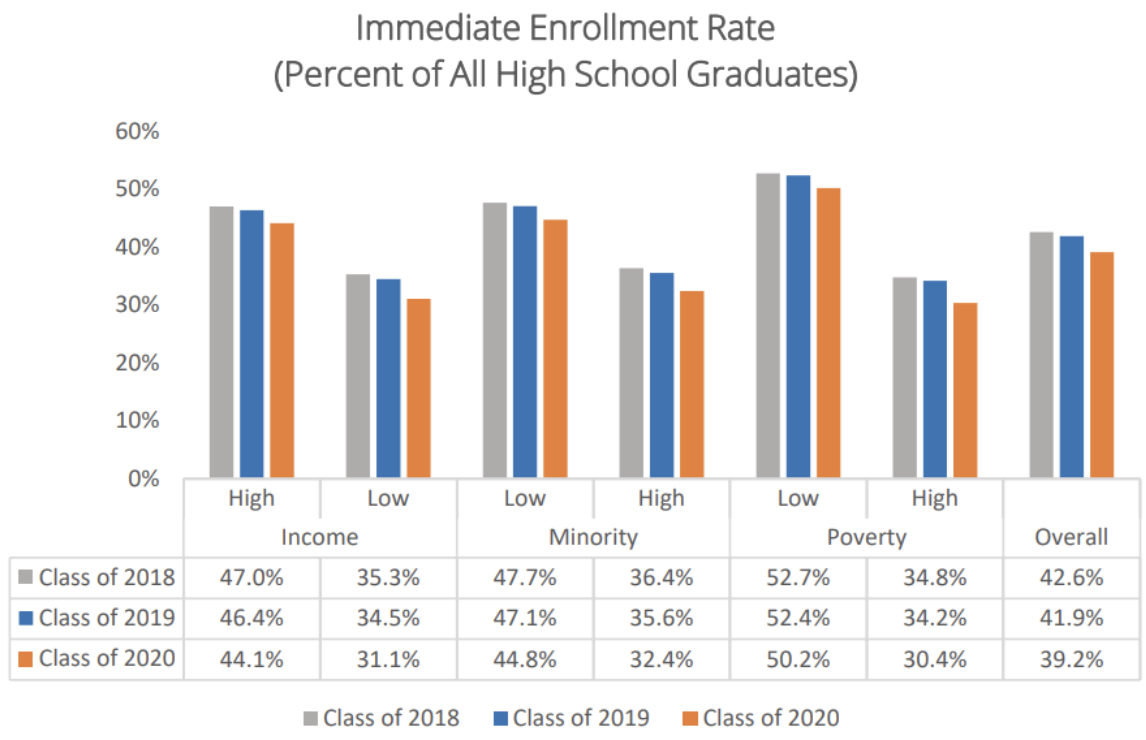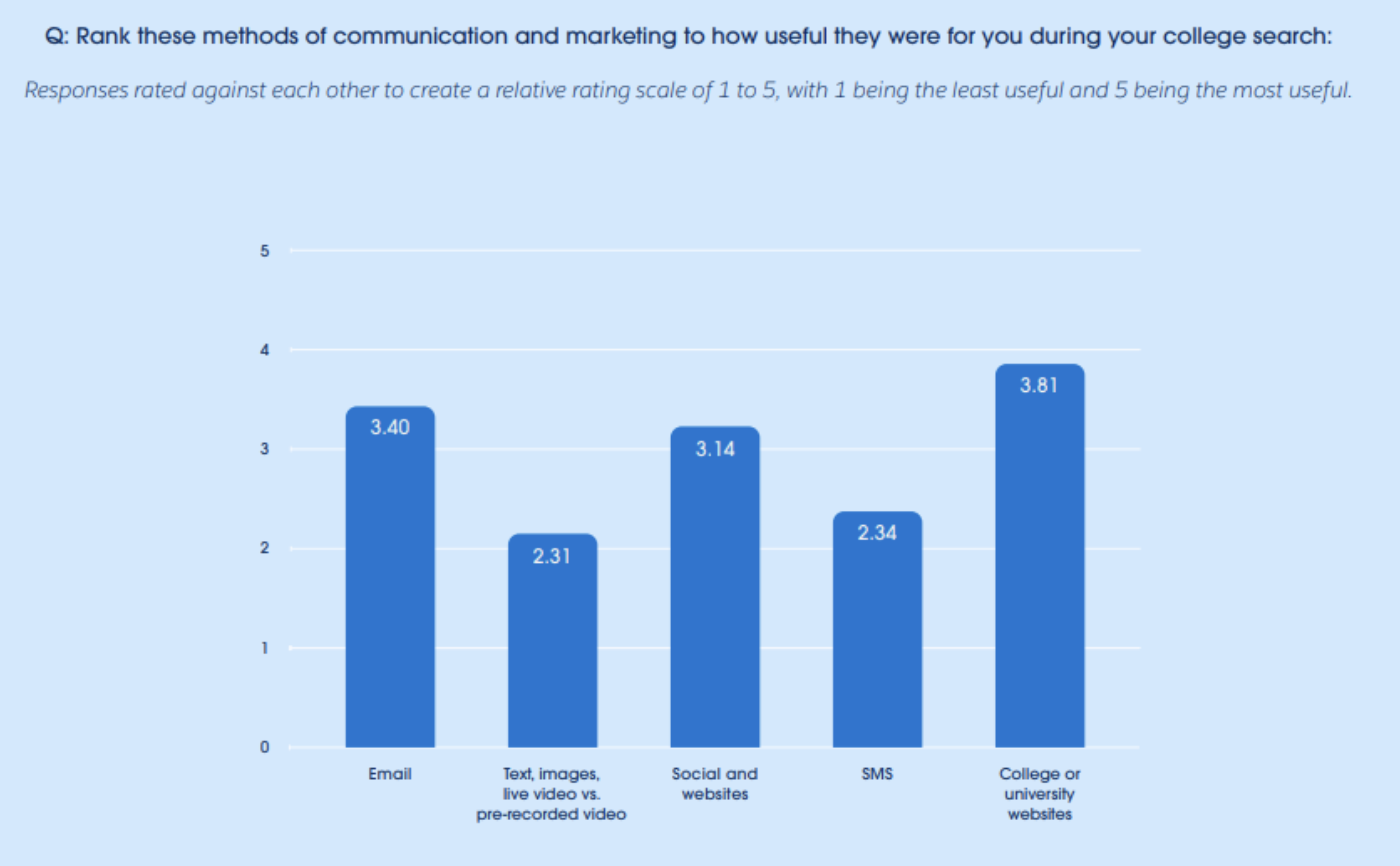The use of administrative holds results in the inability to either register for classes or access transcripts continue to be a topic of discussion, research, and practice examination. One of the items I have been discussing with colleagues is an apparent
need to differentiate further between administrative holds used for issues such as an outstanding bill to the institution, as compared to those holds aimed at student success, such as advising, cohort management, etc. There is movement on addressing
the administrative holds, including some examples below.
A counterpoint to eliminating holds that aim at student success is in this Hechinger report. In my opinion, institutions should analyze the use, and effectiveness, of both types of holds at their campus to determine if they are the most effective way to address the
issues and support student success.
AACRAO Research Update
Thank you to Kizzy Morris and Research Advisory Board Opening
I want to thank Kizzy Morris for her service on the research advisory board since 2020. She
is stepping down from her role to engage in other projects. As such, we have an immediate
opening for a new member of the advisory board. Please review the role and apply
if you are interested in serving. The application period is open until February 15, 2022, and the responsibility will start on March 1.
Gates Foundation Grant Announcement
Based in Dallas, TX, the Commit Partnership (Commit) was awarded a grant by the Bill and Melinda Gates Foundation to implement recommendations from the research AACRAO completed with several Dallas postsecondary institutions about their credit transfer policies and
practices. Commit is partnering with AACRAO to continue this work through June 2022. The
work will include assessing the current state of transfer technology at several institutions and
identifying the resource gaps. AACRAO is pleased to be part of this project and see how our
research partnerships can lead to real changes that help students and institutions.
Transfer Admission and Recruitment Staffing, Technology, and Policy Benchmark Survey
Salesforce provided underwriting for our comprehensive benchmarking survey on transfer student admissions and recruiting, which closed at the end of the first week of January. This
survey attempted to capture the nuance in enrollment management practice, staffing to
support these students, the use of technology, and related admissions policy for three different
kinds of transfer students– traditional, reverse, and "swirlers." The following definitions define the different types of transfer students:
- Traditional transfer: A student who has attended one or more previous institutions and now seeks enrollment and the transfer of earned credit at your institution.
- Reverse transfer: A student who enrolled previously at your institution, left without completing a credential, and now seeks to apply credits earned elsewhere to complete a credential at your institution. OR a student who
transferred to your institution and did not subsequently complete a credential who now seeks to take your institutional credits to complete a credential at a previously enrolled institution.
- Swirling transfer: A student primarily and continuously enrolled at your institution but who chooses to take courses intermittently at other institutions and seeks to use those credits to meet a degree requirement at your
institution. The student is responsible for tuition and fees at the other institution (as opposed to being paid through your institution) and may or may not receive funding through a financial aid consortium agreement at your institution
for those credits.
The data from more than 250 institutions are currently in the analysis phase, and a report and webinar are forthcoming. Early data indicate that 70% of undergraduate and comprehensive institutions have strategic enrollment management initiatives for
traditional transfer students, and 30% of primarily two-year institutions report the same.
Looking Ahead
AACRAO Research projects under development include:
- A comprehensive benchmark of academic operations and its impact on student success
- A look at strategic enrollment management for graduate students
- Deploying the third chief admissions officer career profile survey
- Expanding and redeploying the 60-Second Survey on scheduling practice and policy from 2016 as a comprehensive survey later in the year.
Current Higher Education Research and Related Topics
Number of High School Students Enrolling In College Continues to Decline
A new report published by the National Student Clearinghouse Research Center shows a precipitous decline in high school graduates
that immediately enroll in higher education.
Key findings include:
- The class of 2020 enrolled at a rate 4-10% lower
- The drop was more pronounced in high-poverty or low-income high schools
- Rural schools saw the most significant drop in graduates enrolling in higher education

New Study Examines the Role of Race and Gender in Academic Research
A new research paper published in the Proceedings of the National Academy of Sciences examines racial bias in the academic science community.
Key findings of the study include:
- The academic scientific environment is still largely dominated by white men, but minority representation in science is growing.
- This disparity reflects the state of academic publishing and research funding for scholars of color.
- Relative representation by scholars of color and women in various scientific fields varies widely.
Education in the Skilled Trades Undergoing Resurgence
An article in the Hechinger Report examines the current growth of career and technical education. Various environmental factors seem to be driving this growth, including labor shortages and increased wages in those careers.
Additional key points include:
- A number of institutions are showing significant enrollment growth in these areas, despite a nearly 8% decline in overall enrollment in the last two years.
- The increased questioning of the value of a four-year degree may be a contributing factor.
- A related survey found that 33 percent of Americans think trade school is a better option than a four-year college during the pandemic.
Survey Examines the Recruitment of First-generation Students to Higher Education
A new survey published by Niche examined the recruitment of first-generation students. As part of the survey, Niche examined effective strategies for recruiting first-generation students.
Key points include:
- Understanding the best communication channels (email, text, etc.) for reaching these students is important.
- Diversity in your institution's student population must be more than a talking point to attract first-generation students.
- First-generation students were far more likely than peers to select a two-year college.
- Price and clarity of real costs matter to this group of students.
New Playbook Gives Guidance on How to Re-engage with Learners and Leverage Reverse Transfer
The Institute for Higher Education Policy published a new Degree Reclamation Playbook. This guidebook extensively examines evidence-based practices that can help adults with prior college credits, but no degree achieves that goal. It focuses on equity-based
strategies to re-engage adults and the use of reverse transfer.
The playbook provides a step-by-step guide for starting re-engagement efforts.
Student-Centric Marketing examined in New Paper
Salesforce and Volt have published a new report looking at student-centric marketing. The report looks at best practices from the perspective of higher education leaders and asked students to report on the most effective approaches to marketing.
Key findings include:
 | - 39% of survey respondents began their college search between 8th and 10th grade.
- Email was a more influential source than social media by more than twice as many respondents.
- Fewer than 9% of respondents ranked mobile texting as their most influential medium, while higher ed leaders saw SMS messaging as important.
|